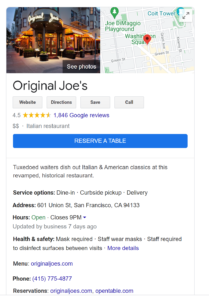No matter what sort of real estate investing you pursue, from wholesaling to owning a portfolio of properties, there are key aspects of your business that remain the same. You need deal flow. This means that you need sellers and, depending on your strategy, you need buyers. You need to market and network. One tool opportunity to your marketing are real estate investor websites to advertise deals, portray your brand and collect buyers for your buyers’ list. A website can be an invaluable tool.
Why You Need A Website for Your Real Estate Business
Credibility
A website is an expectation in today’s environment. Not having a website can lead buyers and sellers to question your legitimacy. A website with a strong brand and an explanation of what you do communicates that you are serious about your business. Advertising past deals shows the work that you do.
Once you have a domain, the URL you type into a browser to get to a web page, it’s free to add email addresses. Now, rather than direct someone to somerandomaddress@gmail.com, show how serious you are as a business with a real email address. The buyers and sellers have no idea how easy it is. They know they feel like they are doing business with a real company.
It Is Always Marketing for You
Your website never sleeps. It is working for you 24/7. Once you find the right mix of marketing to get traffic to your site it is always there to collect buyers and sellers. It’s always showing off your hard work, no matter what time of day or night.
It’s A Marketing Home Base
A website doesn’t replace other types of marketing. Cold calling, driving for dollars, texting, and bandit signs remain valuable sources of leads. Instead of directing them to your phone, you can direct them to your website.
It’s Your Space
Don’t mistake a Facebook page or other social media presence for a website. There’s nothing wrong with having a Facebook page. In fact, you should but with a Facebook page, Twitter feed, or LinkedIn profile you don’t have your own home base.
You are renting property. Since we’re all real estate investors, we know that the lease terms can and do, change. They all change their algorithms regularly. They don’t do this to favor you; they want to sell more ads. If you rely solely on Facebook or other social media, you can suddenly find yourself without an audience.
On your site, you control the rules. You can’t capture things like email addresses and such on social media. The sites take that away from you so that they can control that. Use social media, but keep them coming into your home whenever possible.
Lead Generation
A website can be a great source of lead generation. Buyers and sellers who find your site see what you can do for them and sign up or ask for a quote for their house. They like how easy and professional it is. You get leads.
Once you have those leads, you can set up automation to add their email addresses to a system like ConvertKit, which will let you send them emails to keep them interested. Let them know about your latest deals or what work you’re doing. You can keep those leads warm.
If you don’t mind spending a few dollars, you can even automate emails to them. These drip sequences can be used to educate, inform and interest them, keeping them engaged for future marketing.
Don’t Have the Same Legal Challenges as Other Advertising
Bandit signs, like the “We Buy Houses,” are effective. Unfortunately, a lot of areas outlaw them. Some take them down. Even when they don’t, you can and should include your web address so that potential buyers and sellers can see what you are about. They can see the deals you post there. They can see the deals you have done.
It’s like a public resume showing your results and professionalism. Include your testimonials. Show them how you’ve helped others.
With a website, you don’t have to worry about someone taking it down or you getting fired because it’s up. Unfortunately, you don’t get the benefits of someone driving around and seeing it, but with some creative advertising, you can fix that too.
Things to Look For In Your Website
Alright, so you’re sold, and now you want a website. You’re just starting and don’t want to spend much money. Makes perfect sense. Getting a website doesn’t have to be expensive. Here are some of the costs to think about.
Hosting
Your website needs to live online somewhere. The companies that do this are called Webhosts and there are a bunch of them out there. We recommend Siteground because they are affordable, dependable, fast, and have good support. There are plenty of good ones out there. We’d stay away from some of the big names like Bluehost and GoDaddy. Sadly, they spend more money on marketing than technology and they tend to be slow with mediocre support.
Google penalizes your site for being slow (it doesn’t show as high in the rankings). You don’t need to spring for the fastest hosting out there (and it gets pricey) but for the price, Siteground offers speedy hosting at a reasonable price.
Hosting will typically cost you $10-15 a month or so.
Domain Name
Your domain name is the URL or web address. Yours can be almost anything but should represent who you are or what you do and be easy to spell.
You can get domain names almost anywhere. We like Namecheap because they are affordable and easy to use but you don’t have the same performance concerns or anything like you do with hosting.
A domain name typically costs you about $10-15 a year. Don’t use some generic site like BlogSpot. You aren’t someone trying to share random thoughts on the internet. You are trying to show that you are a serious business person.
Building the Website
Okay, so we have a home and a name for the website. That doesn’t cost much but you need the website itself. You can definitely build a website pretty easily yourself. We recommend using a WordPress website. WordPress itself is free. It adds functionality and design through things called themes and plug-ins. Many of these are also free. So if you want to build it yourself, you can actually do it for free.
Otherwise, you will have to pay someone. That can cost you almost anything from a few dollars to several hundred depending on what you want. A starting real estate investor site doesn’t need much.
You need a main page, a landing page. You need forms for buyers and sellers to contact you. It’s a good idea to be able to show some testimonials and deals. Your site needs to look good on desktop and mobile.
That’s about it, at least initially. You can do a lot more, but you don’t have to, especially if you’re on a budget. Later on, with more cashflow, investing in your website to add more content and functionality is an option.
Now You’re Up and Running With Your Own Real Estate Website
This gets your started. Unfortunately, you won’t magically get traffic to your site. Once it’s up and running, you’ll want to start thinking about strategies to get people to your website.
We aren’t going to go into a lot of depth here. You’ve got enough for now to fill your brain but there are two main ways of getting traffic to your site. The first is SEO, which is search engine optimization, where you build content to try to rank in Google so potential buyers and sellers find you on Google and other search engines.
SEO works through publishing useful content that contains keywords and content that you expect your audience to look for on Google, Bing and other search engines.
The other is paid advertising, also called SEM or Search Engine Marketing where you buy ads on places like Google, Facebook, Twitter, etc. to get interested people to your site.
A third method, which is in between, is to use social media to bring people to your site. You can think of this as electronic bandit signs or virtual driving for dollars. You use social media to market and bring interested buyers and sellers to your site.
It’s your Website
There you go, you’re a real investor business now with your own website. Investors can use real estate investor websites to build their businesses, capture leads, and market themselves.

